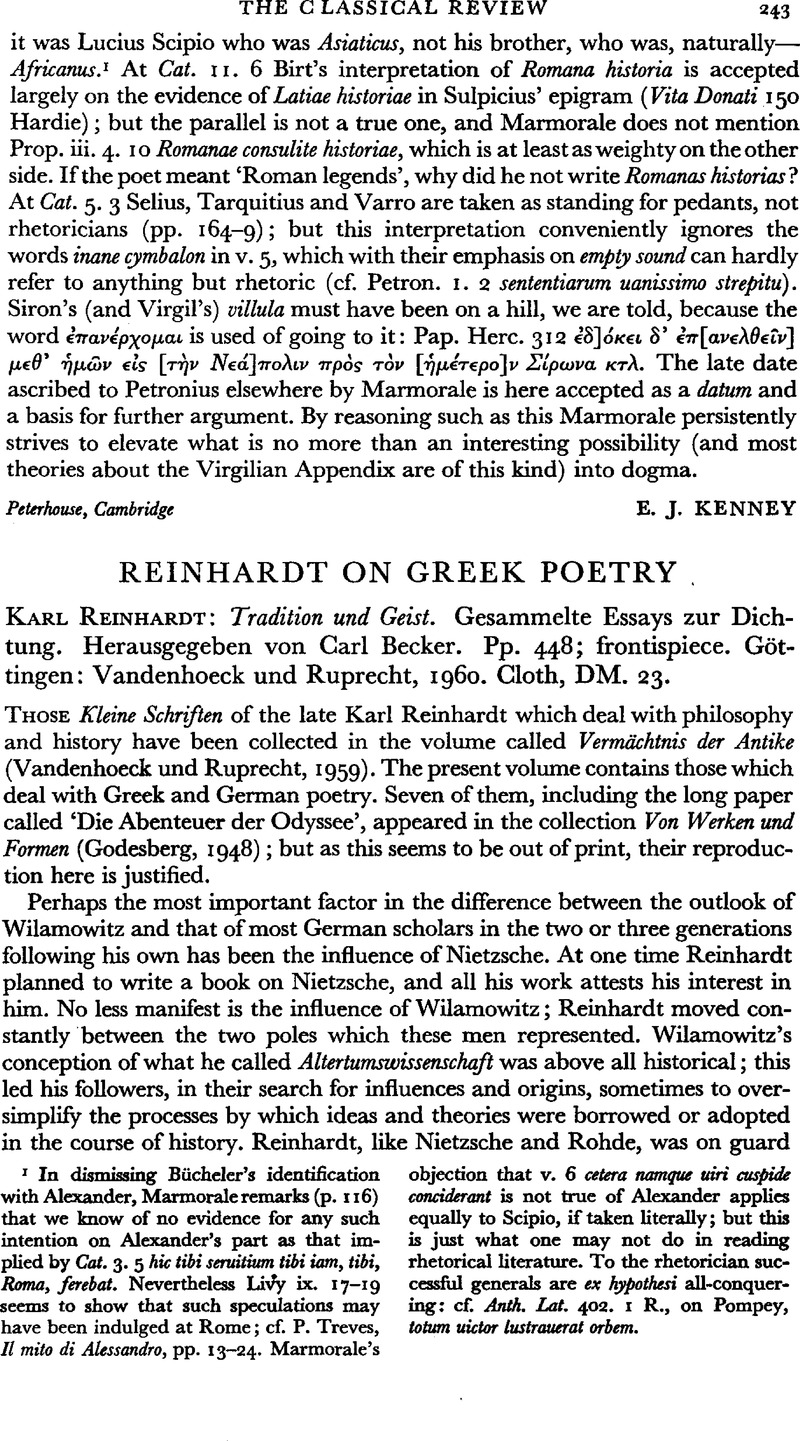No CrossRef data available.
Published online by Cambridge University Press: 27 February 2009

1 In dismissing Bücheler's identification with Alexander, Marmorale remarks (p. 116) that we know of no evidence for any such intention on Alexander's part as that implied by Cat. 3. 5 hic tibi seruitium tibi iam, tibi, Roma, ferebat. Nevertheless Livy ix. 17–19 seems to show that such speculations may have been indulged at Rome; cf. Treves, P., II mito di Alessandro, pp. 13–24Google Scholar. Marmorale's objection that v. 6 cetera namque uiri cuspide conciderant is not true of Alexander applies equally to Scipio, if taken literally; but this is just what one may not do in reading rhetorical literature. To the rhetorician successful generals are ex hypothesi all-conquering: cf. Anth. Lat. 402. 1 R., on Pompey, totum uictor lustrauerat orbem.